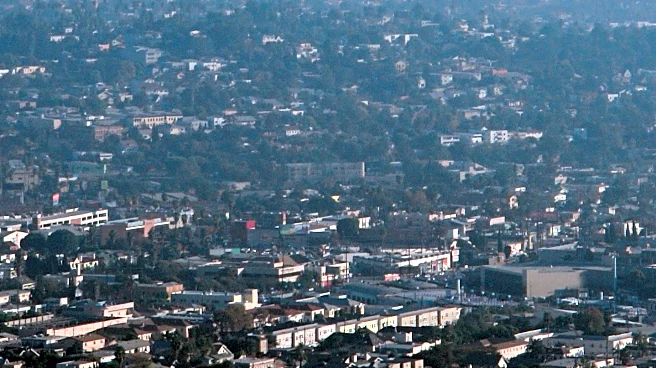What's Happening?
The Los Angeles City Council has declared the remains of the hilltop mansion featured in the television show 'Succession' as a public nuisance. The mansion, located in the Palisades, was destroyed in a fire in January. The owners have reportedly failed
to meet the deadline to clear the hazardous waste left behind by the fire. This decision affects not only the 'Succession' mansion but also seven other properties deemed hazardous by the council.
Why It's Important?
The declaration of the 'Succession' mansion as a public nuisance highlights the ongoing challenges faced by property owners in areas prone to wildfires. The decision by the Los Angeles City Council underscores the importance of timely cleanup and management of hazardous waste to prevent further environmental and public health risks. This action may prompt other property owners to adhere to cleanup deadlines, thereby reducing potential hazards in fire-affected regions. The council's decision also reflects broader concerns about property management and safety in wildfire-prone areas.
What's Next?
Property owners affected by the council's decision will need to expedite the cleanup process to comply with city regulations. Failure to do so may result in fines or further legal action. The council's decision may also lead to increased scrutiny of other properties in the area, potentially prompting more declarations of public nuisances. This could lead to a broader initiative to address hazardous waste management in fire-affected regions, involving collaboration between local government, environmental agencies, and property owners.
Beyond the Headlines
The situation with the 'Succession' mansion raises questions about the responsibilities of property owners in maintaining safety standards, especially in areas susceptible to natural disasters. It also highlights the role of local government in enforcing environmental regulations and ensuring public safety. The broader implications may include discussions on policy changes to improve disaster preparedness and response, as well as the need for more robust support systems for property owners facing similar challenges.















